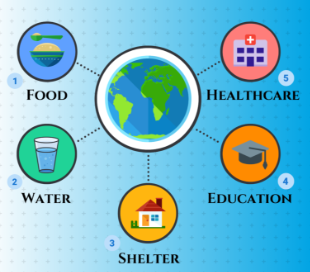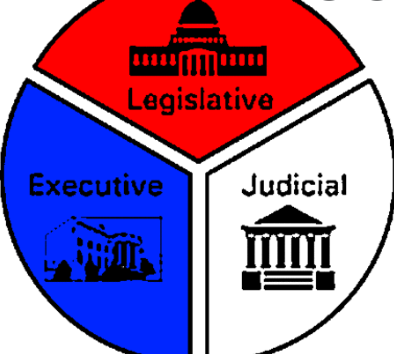Procedure - MP1 Test
5.0(3)
5.0(3)
Card Sorting
1/46
Earn XP
Description and Tags
Study Analytics
Name | Mastery | Learn | Test | Matching | Spaced | Call with Kai |
|---|
No study sessions yet.
47 Terms
1
New cards
Law
A rule that can affect any aspect of the lives of the people.
2
New cards
Social values
Values that affect laws that focus on society, like anti-discrimination or education laws. They promote justice, freedom, respect, community, and responsibility.
3
New cards
Basic human rights
Indisputable privileges that a person has because they are a human being. These include the right to life and freedom from slavery.

4
New cards
Separation of powers
The division of powers between multiple people or groups of people so one doesn’t become too powerful. We can see in the legislative, judicial, and executive branches in the United States government.

5
New cards
statutes
Written laws enacted by legislatures that can be looked up in databases or books. An example of this includes traffic violations and the minimum drinking age.
6
New cards
Moral values
Values behind laws that prevent actions that are morally wrong. For example, these are laws that prevent murder are moral laws.
7
New cards
Political values
Values that affect laws that benefit politics. An example of this is laws that prioritize the right to vote or that limit the campaign budget of those running for office.
8
New cards
Economic values
Values that affect laws that benefit the economy. An example of this are laws that affect the gaining and distributing wealth.
9
New cards
How can acts be legal but immoral?
Acts can be legal but immoral when they hurt people in a way that is emotional but not illegal. Some examples of this are cheating on your partner or breaking a promise. In some countries, it is immoral to drink or dance but it is not illegal.
10
New cards
How can acts be immoral but legal?
Acts can be illegal but moral when they don’t hurt or put anyone at risk but are illegal. An example of this could be a homeless person stealing necessities like baby formula or food.
11
New cards
Criminal cases
These cases require that there is beyond a reasonable doubt (>90% proof). This includes DNA, audio recordings, and video recordings. the evidence cannot be countered by the other side.
12
New cards
Civil cases
In these cases, you need at least preponderance of evidence (>50%), which requires the plaintiff to prove that it a crime is more likely than not.
13
New cards
US Constitution
The rights in this document protect the rights of the people in the United States
14
New cards
Universial Declaration of Human Rights
The rights in this document protect the basic human rights of people all over the world
15
New cards
Supremacy Clause
Says that the Constitution and federal laws are prioritized over any conflicting rules given by the state. An example of this is the legal drinking age.
16
New cards
Checks and Balances
A system where two or more groups check each other's actions to make sure that one group doesn't gain too much power
17
New cards
Federalism
The seperation of power between the states and federal government
18
New cards
contingency fee
A fee that is payable only if the outcome of a case is successful
19
New cards
Retainer
a fee charged to retain the services of a lawyer. It is noramally hourly
20
New cards
Criminal law
A system of laws that focuses on crimes and the punishments of people who commit crimes. An example of this is a law that sets the minimum number of years someone can be imprisoned for arson.
21
New cards
Code of Hammurabi
A collection of 282 laws that created legal standards and set punishments for if the laws were broken
22
New cards
Civil Action
A non-criminal lawsuit that enforces a right or undoes a wrong. An example of this would be a lawsuit for discrimination or medical malpractice.
23
New cards
Defendant
The person whom a legal claim is being made against
24
New cards
Plaintiff
a person who brings an action into a court of law
25
New cards
Preponderance of Evidence
The standard of proof used in a civil suit. It proves that something is more likely than not
26
New cards
Beyond a Reasonable Doubt
the level of proof that’s needed to convict someone of a criminal crime. There doesn’t need to be 100% certainty, but there can’t be reasonable doubt.
27
New cards
Prosecutor
A government official who represents the state and works to bring the defendant to justice.
28
New cards
judicial review
The process that courts use to decide whether a law passed by congress or the state legislature is constitutional or unconstitutional.
29
New cards
Absolute certainty
100% sure that a person committed a crime - it cannot be disproved.
30
New cards
Reasonable supicion
The "common-sense conclusion" that a crime is being committed. It is a hunch. If an officer has this, they may frisk or detain the suspect briefly. They are not able to search the person unless it occurs on school property.
31
New cards
Probable cause
This is one step above reasonable suspicion and it is when it is obvious a crime is being committed. This is enough for a search or arrest warrant, and even an arrest.
32
New cards
Basic principles of law
Everyone, including the government and government officials are accountable under the law.
33
New cards
Ten comandments/12 tables of Rome
Early examples of laws
34
New cards
Legal advertisements
Advertisements of legal services provided by a lawyer or law firm. They can be limited bt the state.
35
New cards
Civil law
A system of laws that focuses on the relationships between people and things.
36
New cards
Gideon v Wainwright
The significe of this case was the Supreme Court ruled that the Constitution required states to provide defense attorneys to criminal defendants who could not provide a lawyer for themselves.
37
New cards
Legal malpractice
The term for negligence, breach of fiduciary duty, or breach of cotnract by a lawyer that causes harm to the client.
38
New cards
Due process of law
Fair treatment under the law to everyone
39
New cards
Binding
A legal agreement that cannot be broken
40
New cards
Bill of rights
The first 10 Amendments of the Constitution. They include the basic rights of the people, including freedom of speech, press, religion, assemply, and petition.
41
New cards
Ombudspersons
An official who investigates complaints against businesses, public entities, or government officials.
42
New cards
Informal talk
A conversation between two people that is casual and has no one else present. It is not legally binding.
43
New cards
Negotation
A more formal but not legally binding conversation between two parties.
44
New cards
Mediation
a negotiation to resolve an issue that includes an impartial third party
45
New cards
Abitration
A legally binding method for settling disputes that involves multiple additional parties creating a legal contract
46
New cards
Court action
A legally binding way of settling a dispute that requires going to court
47
New cards
Settlement
An agreement that ends a disupte